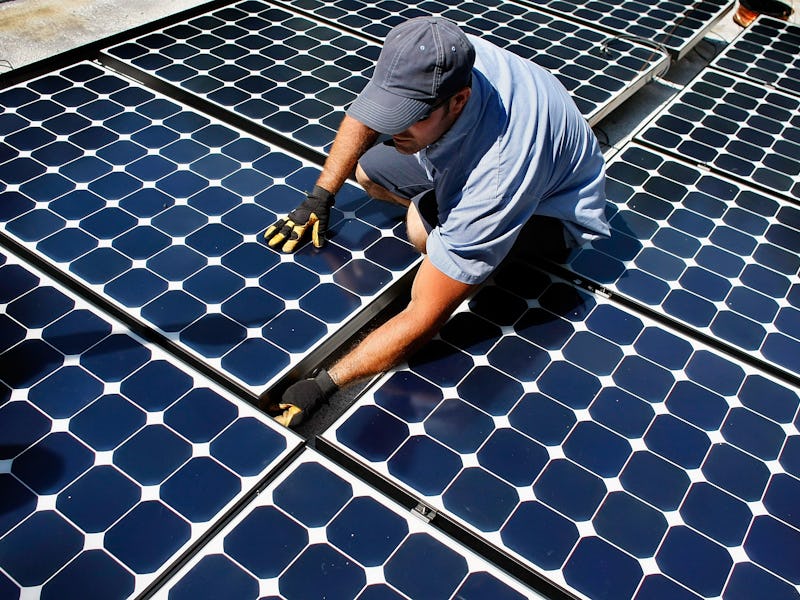SolarCity Customers Generate Enough Power to Charge 114,000 Teslas Every Day
That's literally every Tesla in the world.

Elon Musk is all about electricity. The multi-industry technology pioneer tweeted out an interesting figure today about his SolarCity solar power company. SolarCity’s 230,000 customers generated eight million kilowatt-hours of electricity in a single day in March, which Musk pointed out was enough to charge more than 114,000 Tesla Model S cars.
According to Tesla, there are only about 107,000 Model S cars on the road, so SolarCity’s juice could easily charge up their batteries. There’s no data as to how many SolarCity customers are also Tesla owners, but we’re willing to bet there’s a fair amount of full-Musk homes out there. Musk also pointed out that the energy that SolarCity’s panels generate is completely carbon-free — it’s soaked up from the sun, and doesn’t rely on burning fossil fuels to juice up the homes that it powers. Thanks to federal tax incentives, solar power is taking off across America, and Musk’s company is definitely feeling the bump in sales. They’re also feeling the heat over at Tesla, with the new Model 3’s preorders going off the charts. With the Model 3 finally offering middle class buyers an affordable Tesla option, it’s not unlikely that SolarCity customers may also become Tesla drivers in droves in the next few years.
Here’s the math, according to the SolarCity blog:
A standard Model S has a 70 kilowatt-hour lithium-ion battery. Eight million kilowatt-hours of electricity could provide a full charge to more than 114,000 Tesla vehicles.
To be exact, eight million kWh could give a full charge to 114,285 Teslas, and get one more to about three-quarter charge. The average American home uses about 911 kWh per month (depending on location and season, of course), or about 30.36 kWh per day. On their eight million kWh day, SolarCity’s 230,000 customers generated an average of 34.78 kWh each, meaning that most homes hooked up to solar panels were probably completely energy self-sufficient. On the grid, electricity usually goes for about $0.10 per kWH, meaning a Tesla Model S costs somewhere between six and nine dollars to charge up (there’s some variables, like charger efficiency and battery size). A lot cheaper than a tank of gas, but could still get expensive if you’re maxing out your Tesla’s 234-mile range every day (or doing something like racing a Boeing 737).
SolarCity and Tesla are Musk’s two most obvious sister companies, but if you tried hard enough, you could probably complete the Musk quartet if you are a SpaceX employee who used PayPal to reserve a Tesla Model 3 and then went home to your SolarCity powered house. That’s uh, pretty specific, but if you actually fit that bill, don’t hesitate to get in touch.